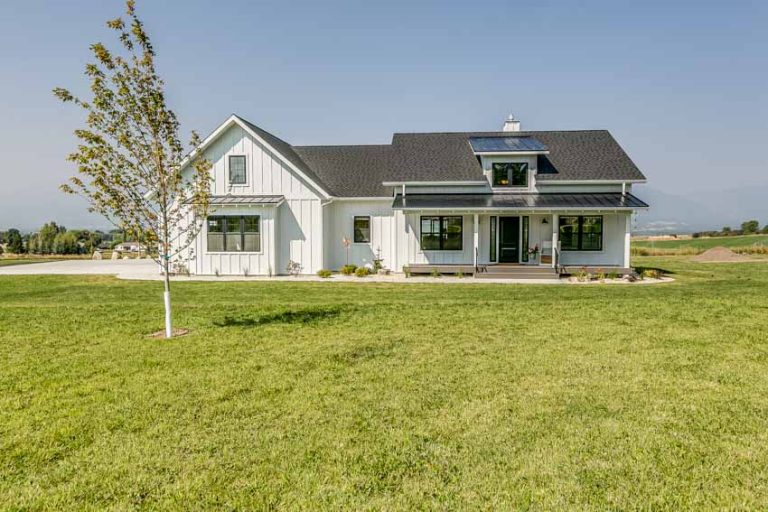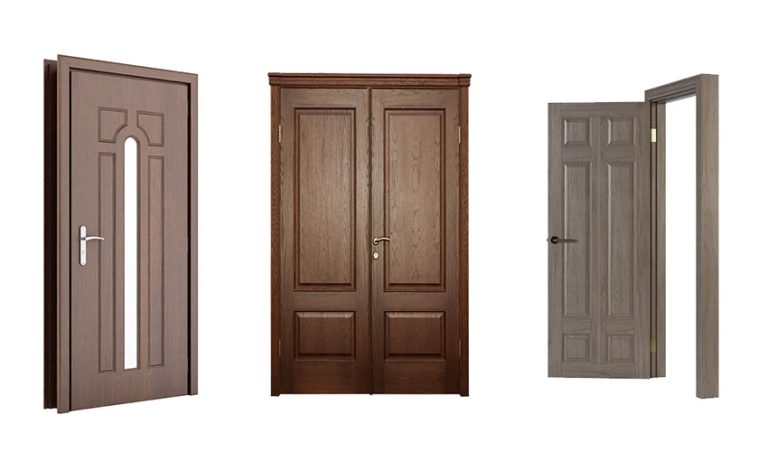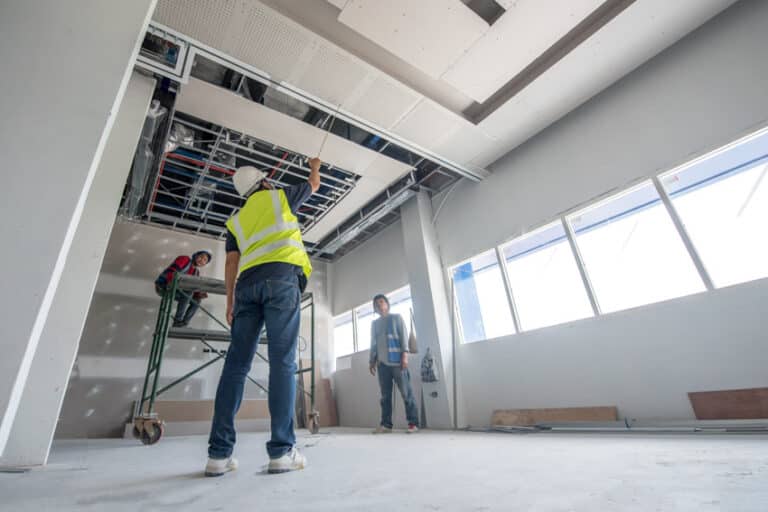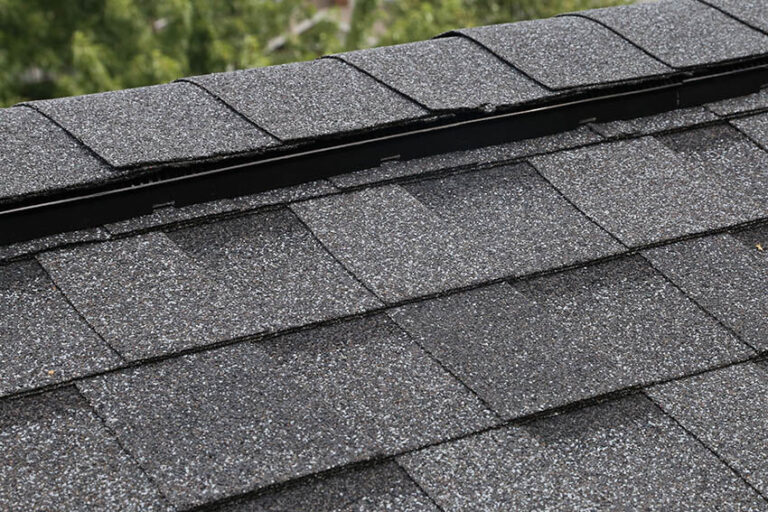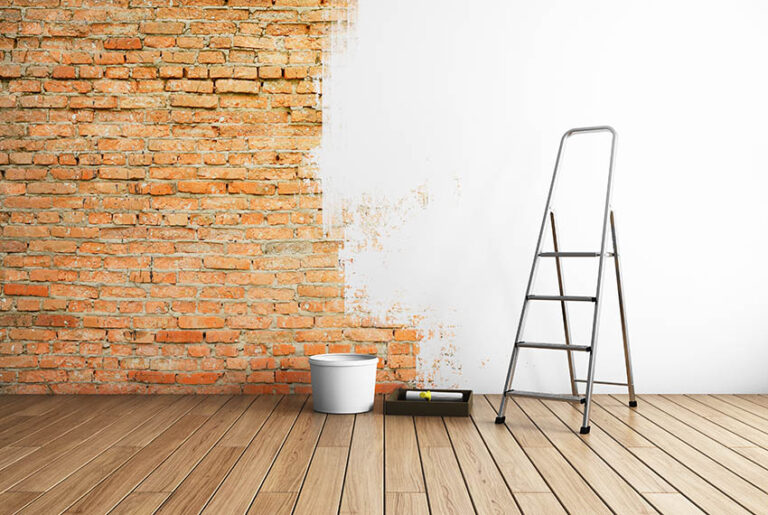Types Of Water Heaters (Buying Tips)
In this types of water heaters guide we share the different models such as conventional, tankless, hybrid, solar & condensing, lifespan, installation, and tips on how to choose a one.
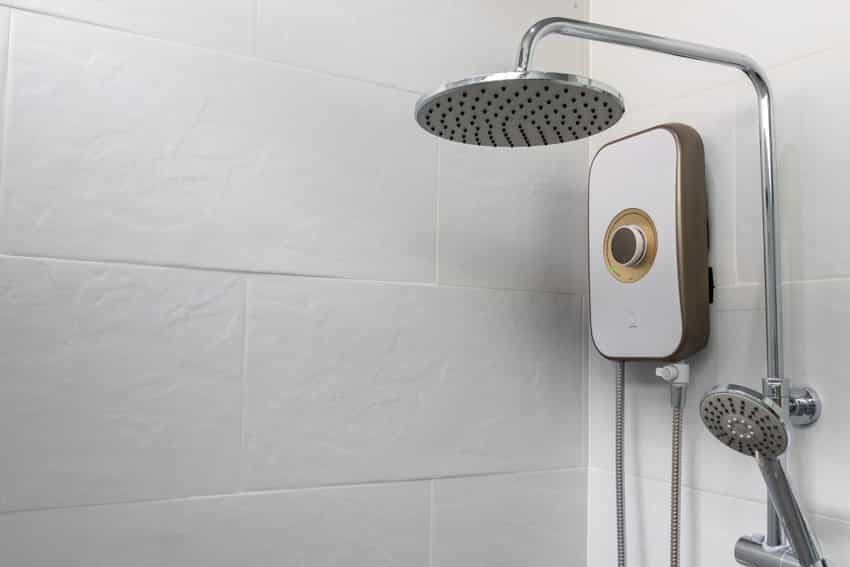 If you enjoy taking hot showers after a long, exhausting day, it is time to discover the different types of water heaters as they are likely some of the most active items in your home.
If you enjoy taking hot showers after a long, exhausting day, it is time to discover the different types of water heaters as they are likely some of the most active items in your home.
Heaters distribute hot water upon command to all of your faucets and plumbing fixtures, whereas without one, you would have to manually heat water every time you have to bathe or wash something.
Nowadays, the market offers a wide range of heating devices, each with noticeable unique qualities. This is how far technology has progressed in making our everyday life easier.
You will, however, encounter difficulties as you search for the best heating appliance for your home.
Fret not! To assist you in making a wise choice, we have created a list of the different types of boilers and their descriptions in the following guide.[toc]
Conventional Heater
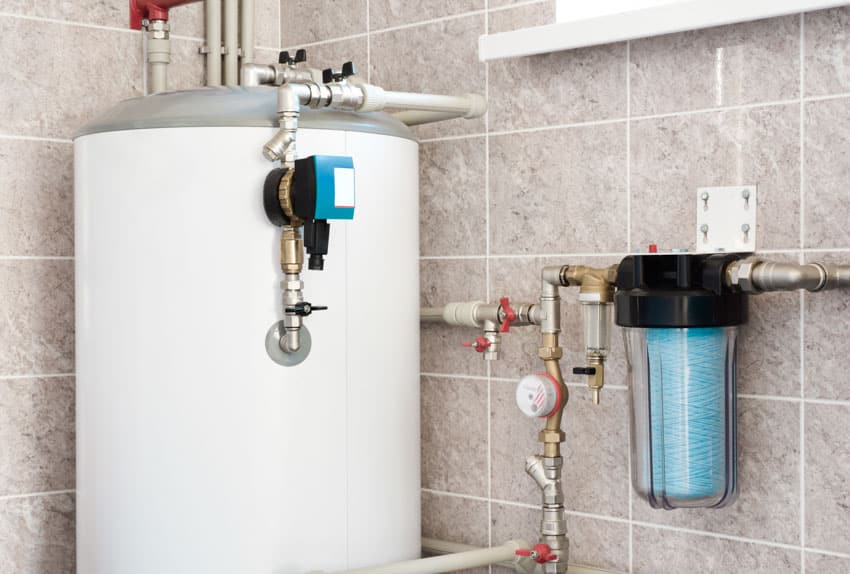
It has a tank that stores the hot water. This implies that the tank’s capacity influences how much heated water is provided at any given time.
The tank is insulated, thus when the temperature increases, it stays warm until it is needed. Moreover, the tank in a conventional boiler has two valves: one for temperature regulation and one for pressure regulation.
When the temperature exceeds 120°F, the temperature regulating valve opens to discharge heat and decrease the temperature. When the pressure hits roughly 150 psi, the pressure release valve is opened to reduce the pressure.
This is the most prevalent boiler for residential homes, although it has a restricted capacity for hot water.
If your tank is too inadequate or you need an ample quantity of hot water on a single day, you might run out and be forced to wait for another tank to get heated.
In addition, the tank continuously stores water, hence you will have to clean it out routinely to extend the longevity of your heat on demand unit. You must clean it at least twice a year to eliminate debris and mineral buildup and to assist in corrosion prevention.
Tankless Heater
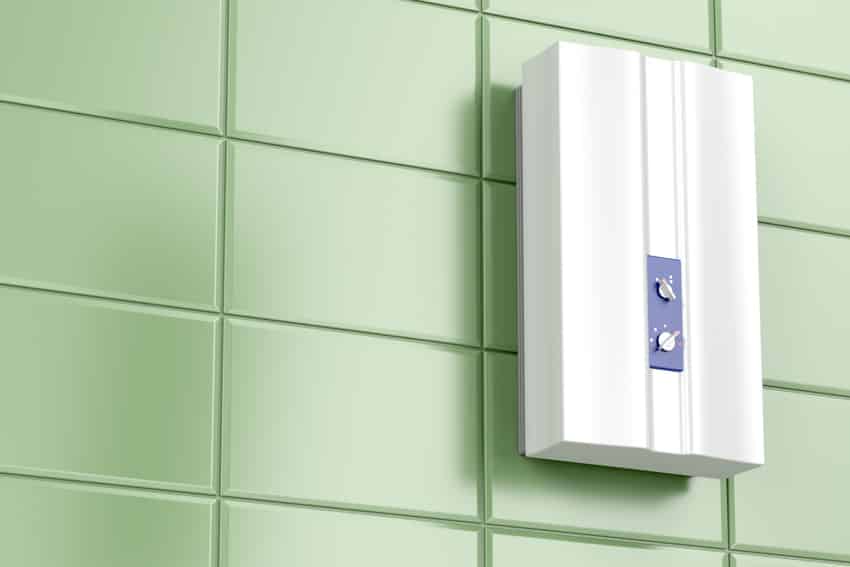
As you may expect, it does not hold a tank. Rather, there are ultra-heated coils that store water and quickly heat it as needed, hence it is also known as an on-demand kind of heater.
This can be used to heat water for fixtures such as the bathroom or kitchen sink, shower, tub, washing machines or dishwasher to name a few. One tankless type heater can typically run the equivalent of two showers at the same time.
Furthermore, this type of heater is ideal for rapidly heating water, making it ideal for huge families who require a huge amount of heated water in one go. It is available in various sizes.
However, there are several tankless water heater pros and cons you should be aware of to fully maximize this bathroom fixture.
You must also verify that you have the appropriate size for your home since a smaller size would not be able to catch up with your water demand, resulting in lukewarm or chilly water.
Indeed, these are extremely energy-efficient since they simply heat water upon demand rather than keeping heated water the whole day, while not being used. Suppose you acquire a large-sized model for your home, you will always have ample amounts of hot water.
Considering the absence of a tank, you must clean your tankless heaters at least once a year to eliminate mineral buildup and avert corrosion. Cleaning might be more challenging due to the tiny and hard-to-access spaces.
Heat Pump Heater (Hybrid Heater)
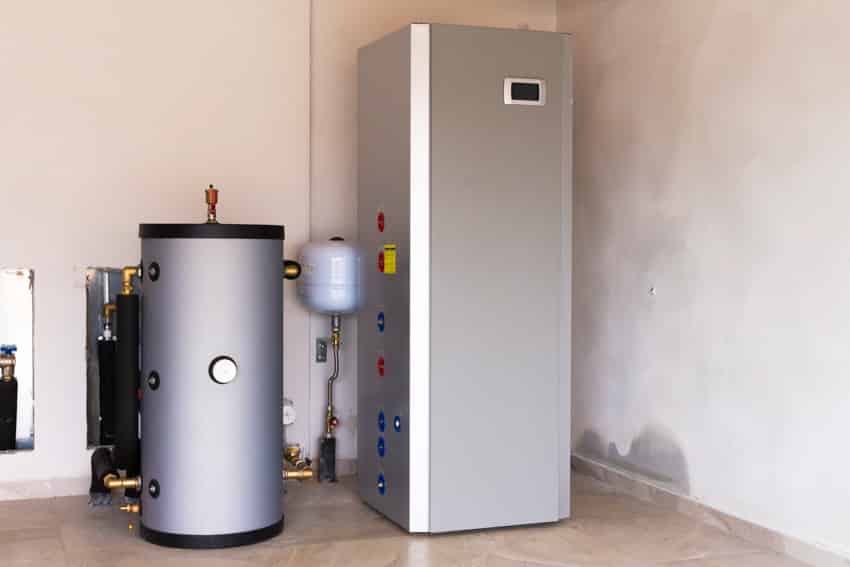
This indicates that electricity is only used to keep moving heat from the ground and air to the water rather than being used to produce continuous heat.
Heat pump, or hybrid heaters, can consume up to 60% less energy than conventional heaters.
Since the pump is located on the top, this type of heater may require a lot of space, often up to 8 feet of vertical clearance. It does not directly produce heat, hence this hybrid boiler might help you save money on power.
This type of heater is extremely energy-saving and, as a result, can be quite cost-effective in the years ahead. This heating system contains a tank, and it, similar to standard storage tank heaters, must be cleaned at least twice a year to maximize its longevity.
Condensing Heater
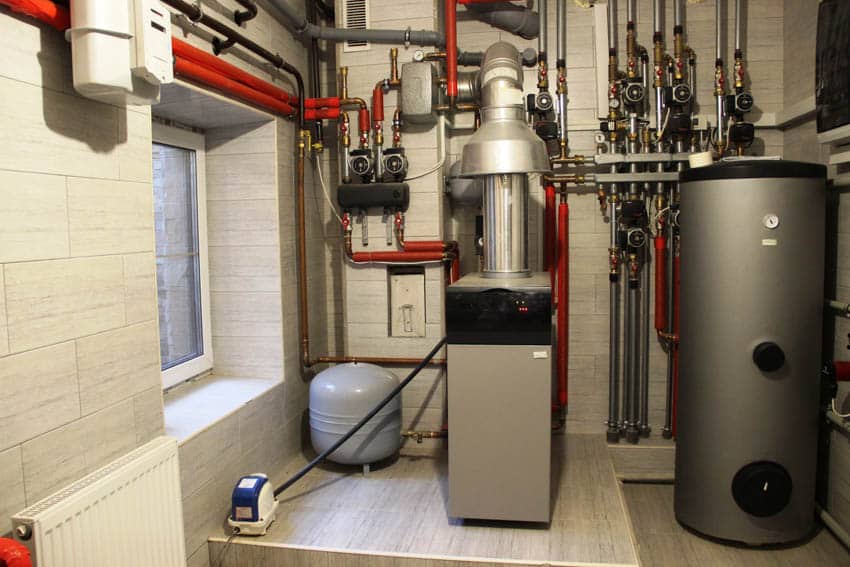
This form of heater funnels hot output from the natural gas line and utilizes it to heat the water, which is stored in a tank in the same sense as the conventional heater. In a nutshell, this boiler heats your water using excess gas fumes from your home.
Moreover, the gas fumes pass through a coil at the tank’s underside to heat the water. As a result, relatively minimal energy is utilized to heat your home’s water.
Because it is a tank-styleheating system, you must ensure that it is substantial enough for the rest of your family.
For people who heat their homes with natural gas, this type of heating system is generally the most energy-efficient option. Because this type of heater normally necessitates a bigger tank, there is often an abundance of water to go around.
Adding another dimension, there is a tank to maintain in this type, much like in other types of heaters. A condensing heating system could also necessitate the cleaning of its gas import valves yearly.
Solar Heater
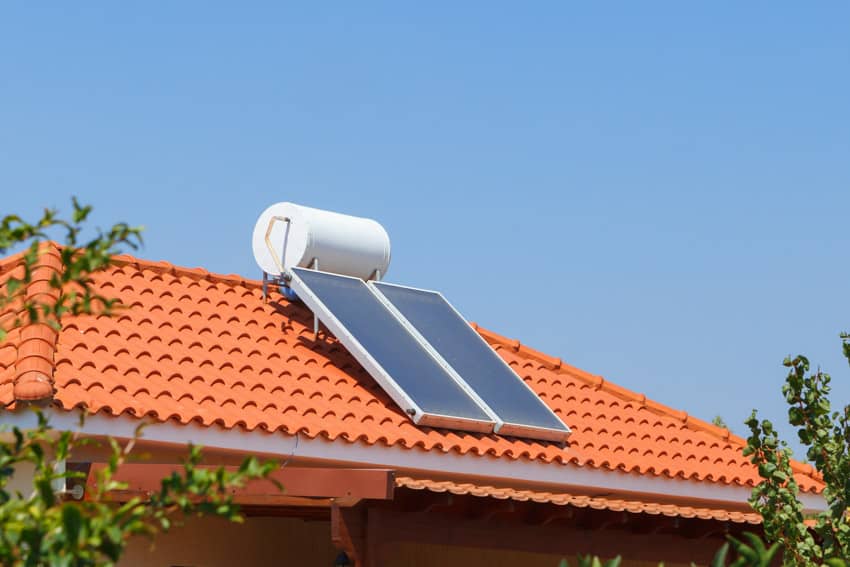
This heater type is perhaps the most energy-saving of all types as it is powered by roof-mounted solar panels.
This technique, meanwhile, frequently necessitates a fallback option, such as natural gas or electricity, so that the heater can keep on operating on overcast days.
Solar water heaters are extremely environment-friendly. Allowing the sun to handle the majority of the power management of your water heater will save you thousands of dollars on electricity every month.
Furthermore, keep in mind that this system has a tank that needs to be cleaned on a constant schedule to eliminate grime and avoid rusting. You must also take into account the need for solar panel upkeep, as well as the maintenance of the roof types it’s installed on.
Combined Space & Water Heating System
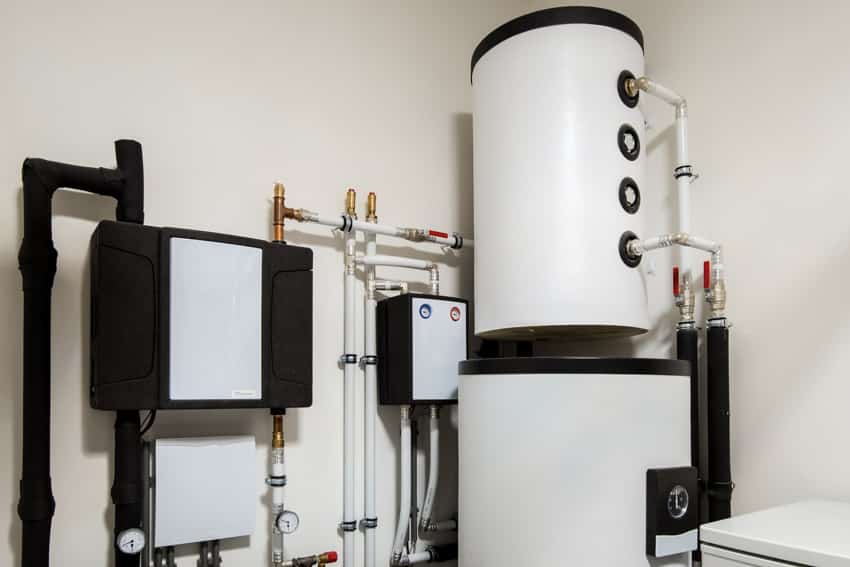
With such systems, you will simply need one heating unit for household water and space heating, which saves a large amount of power.
Aside from that, this water-heating system, also recognized as the ‘combi’ system, is simple to install and could seamlessly replace the current water heater and forced-air furnace.
This technology consists of a high-efficiency boiler as well as an improved hydronic air handling unit. These air handlers contain big coils that aid in heat transmission for an economical technique of room heating.
The fanning coil is usually put alongside the duct-work, and the little pump circulates water from your heater across the fan coil. If you prefer floor or direct heating, the hot water can be distributed via in-floor pipes.
If you are planning to purchase this type of heater, you must be mindful of the size to ascertain that it can support both heating functions.
When this system is being used to heat water along with space heating, its functions change. Thus, the space heater’s efficiency level must not be used to assess its performance as a water heater.
In comparison to standalone high-efficiency water heaters and natural gas furnaces, the “combi” system uses the same amount of gas. It saves a considerable amount of power and expenses by eliminating the need to buy separate space and water-heating units.
Furthermore, with the use of a direct or powered fire vent, this method minimizes spillage difficulties from natural draft appliances.
There are various advantages to performing routine maintenance on this whole heating system, including extended equipment lifespan, minimal repairs, cheaper energy expenditures, reduced chances of disastrous breakdown, and safer machine operation. An expert must be hired at least twice a year for a thorough checkup and cleaning.
How to Choose Heating Systems
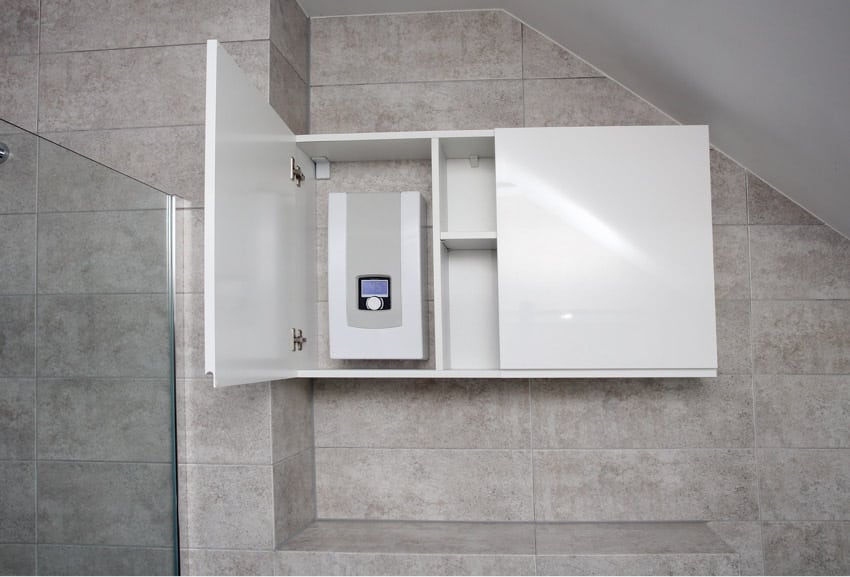
However, we have prepared some guidelines below to help you determine what factors you should take into account first before buying a heating system for your beloved home.
Know the Capacity You Will Need for Your Household: To measure the size of the water tank, first, what you need to do is determine how much water you will need for your entire family.
For example, a 40- to 50-gallon tank would be enough for 2 to 5 people, and a 55-gallon tank would be ideal for 6 to 7 people. In addition, a residence with more than eight people will necessitate the usage of two water heaters.
Get a Water Heater with Factual and Extended Warranty: The standard coverage for heaters differs depending on the cost and length of use.
However, the average life span is 3 to 12 years. If you prefer a lengthier warranty coverage, you may have to pay a little more.
Nonetheless, we recommend that you pay the additional amount to remove a burden from your shoulders without having to shock yourself with additional repair bills in the future.
You can also find several models of heaters with warranties ranging from 13 to 15 years. They also have bigger furnaces or other devices that can accelerate the heating procedure. It may also have better insulation, which prevents heat loss and saves energy.
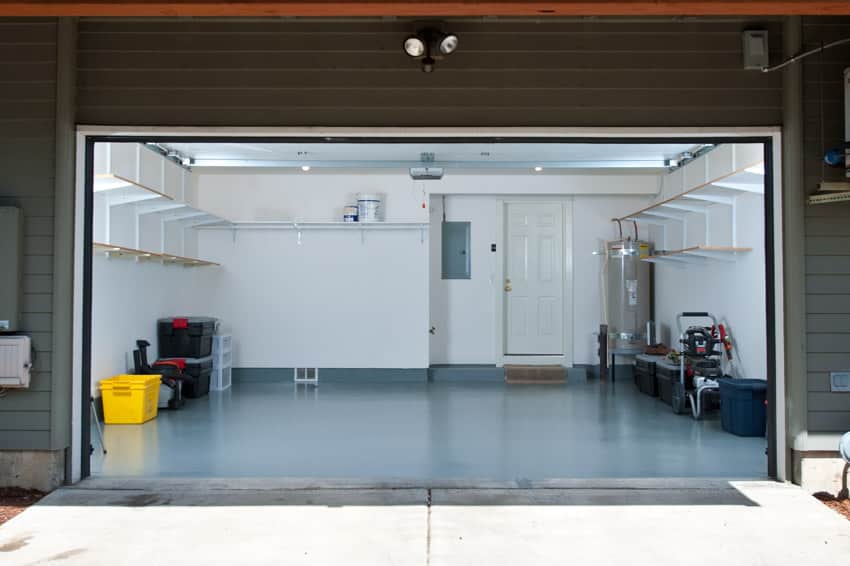
The continuous movement of water within the tank aids in the prevention of mineral accumulation. This function can help prolong the longevity of your heater.
The Tank Must be Glass-Lined: Certain heaters have a glass lining composed of porcelain enamel within their tanks. The majority of heaters are composed of steel, however, a porcelain enamel coating assists in preserving the interiors from deterioration.
The ceramic enamel coating is indeed becoming increasingly trendy at the moment. A glass lining is not obligatory in a heater, but it does help to avoid corrosion, which prolongs the longevity of the heater.
Always Go for Brass-Made Drain Valves: A drain valve is normally located near the water heater’s underside. It is intended to empty the water before moving the equipment, but it could also be due to other maintenance purposes.
Generally, these drain valves are composed of plastic or brass. Brass, in contrast to plastic, is more durable and flexible, and it is also recognized for being less susceptible to fluctuations in water temperature.
It could be a minor detail to consider, but it does have a huge effect on the heating system‘s reliability.
As Much as Possible, Look for Water Tanks with Digital Displays: Indeed, boilers with digital displays are more practical for your specific needs because the settings can be conveniently modified.
Such sophisticated digital displays allow you to regulate the water temperature and output, and they also include a scheduling option. For increased functionality, you can enter the duration that the home is occupied so that it can switch off whenever you are elsewhere.
How Long Do Heaters Last?
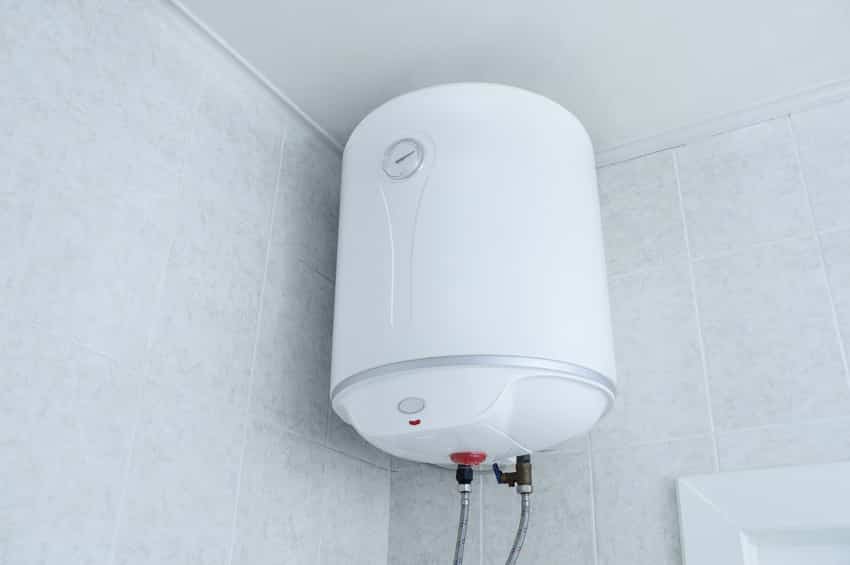
• A heat pump heater has a life expectancy of 13 to 15 years. A heat pumpsystem would be an excellent investment because of its extended lifespan and massive energy savings.
• Tankless heaters use very little energy. They do not possess a storage tank but rather heat water as necessary. Tankless types have a lifespan of at least 20 years and can survive even longer with proper maintenance.
• Condensing heaters have an approximate longevity of 8 to 12 years. Nevertheless, if it is handled and maintained properly, it can survive for 15 years or more.
• The typical life expectancy of approved solar heating systems is 20 years, which is significantly longer than the life expectancy of conventional gas or electric storage heaters.
• A combined space and heating system has a typical lifespan of 10 to 15 years, contingent on maintenance and consumption. It features a small footprint and built-in components for external reset operation, auxiliary pump inputs, and recirculation functionality.
• One way to enhance the lifespan of your heater is to install a water softener. A softener can help reduce limescale and calcium deposits that can cause build-up to occur inside the tank and pipes. Read more about the pros and cons of water softeners here.
Who Installs Hot Heaters?
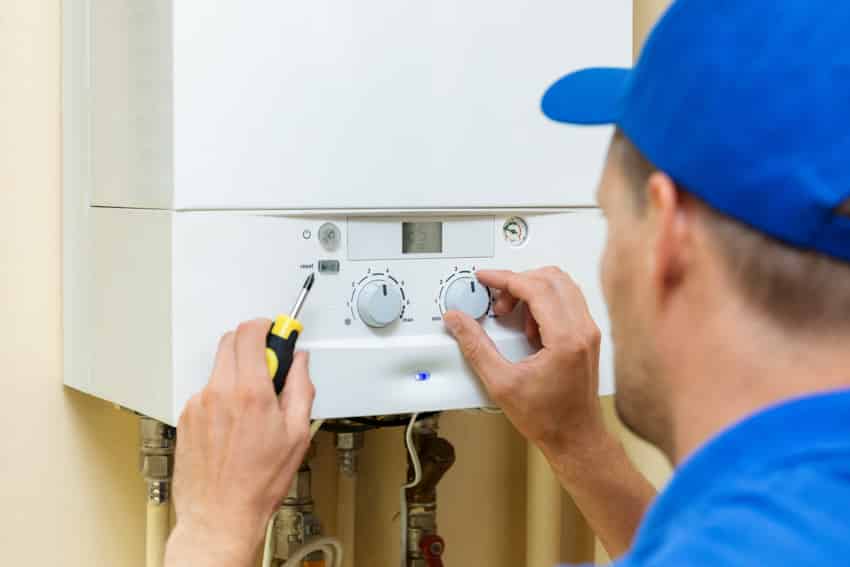
All you have to do is search on the internet and type “best water heater installers near me”. Just type your ZIP code and the website you visited will list down all of the nearest plumbing companies and expert plumbers near your area.
You can also schedule an install from one of the big box home improvement stores such as Lowe’s or Home Depot. They can arrange the delivery of the new unit and installation from one of their affiliate companies.
How Long Do Heaters Heat Up?
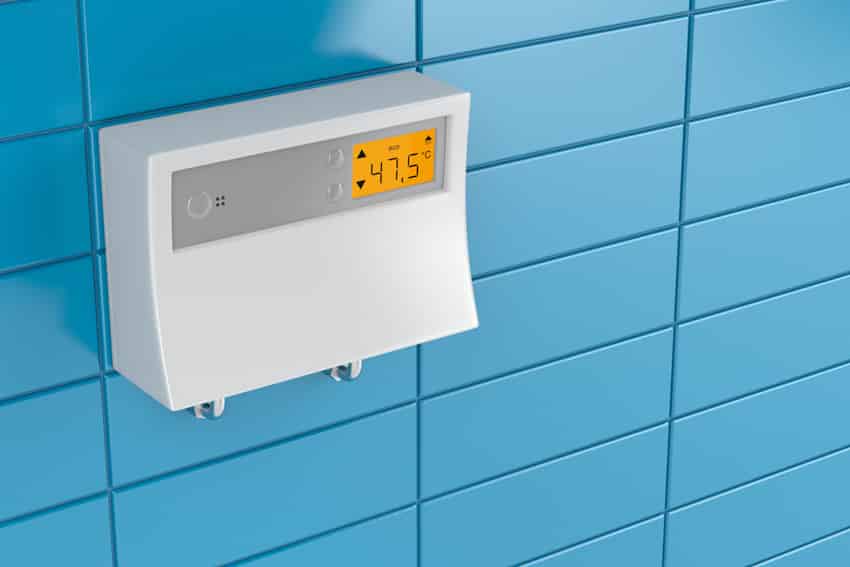
However, since not all heaters are all the same, it is indeed critical to understand how long you will have to wait when their resources run out. Simply said, the larger the heater, the longer it takes to heat the water.
A conventional gas heater normally takes 30 to 40 minutes to thoroughly heat the tank.
A conventional electric heater tends to take about twice as much time as a conventional gas heater to completely heat up the water in its tank. Hence, you can expect it to take 1 hour or more to heat properly.
Solar heaters, on the other hand, usually take 30 to 40 minutes to heat the water in their tank. Unfortunately, if they do not have a fallback source of energy, an overcast day could indicate that you will be lacking hot water for an extended period.
A tankless heater will give an endless supply of heated bath to your home with little to no preheating time.
Tankless heaters quickly heat in around 15 to 30 seconds, but you still need to wait for that heated water to reach your faucet or which among the types of shower heads you’re using in the bathroom, just like the standard tank-type heaters.
This is one of the main reasons why this is the most ideal type of heating system. It heats more than 10 times faster or more than any other type of water heater.
Are Heater Systems Gas or Electric?
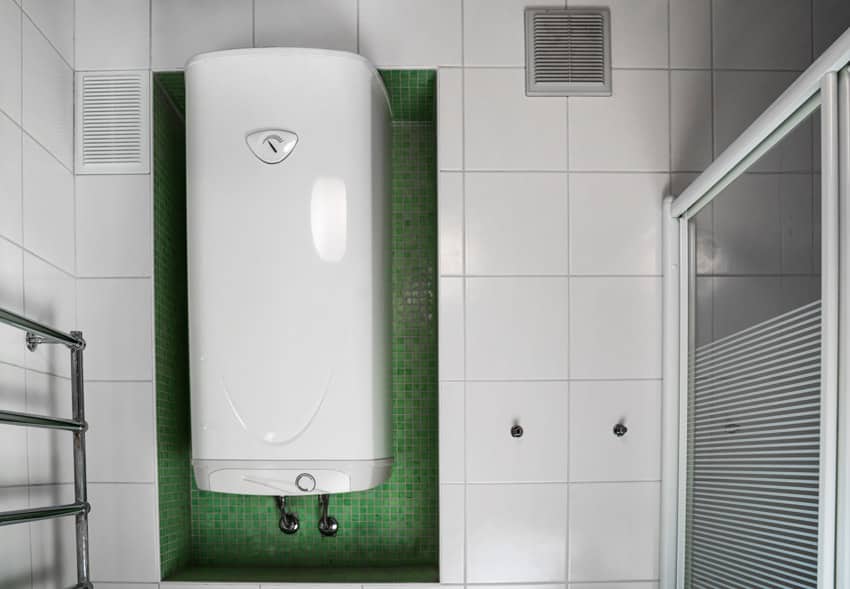
Check for a pilot light with a blue flame in your heating system: A blue flame pilot light is frequently installed in gas-powered boilers. The light shows that gas is existing in your heating system.
You can check for the pilot light by removing the entry panel from the side of your heating system. If you can detect a pilot light inside the heater, then you are certainly operating a gas heater in your home.
Electric-powered heaters are not using these pilot lights that gas boilers have.
Check if your heating system has an electrical power cord: Try to inspect if there is an electrical wire that connects to your heater.
That cable is normally a wide extension of the heater that comes in colors black or gray. If you notice a heavy wire linking from the upper end or the side of your heater, then your heater is electric-powered.
Check if you can find a black or copper pipe: If you detect a 0.5-inch black pipe or a 0.25-inch copper pipe connected to the underside of your heater, then it is no doubt a gas heating system. Both lines deliver gas to the heater, which heats the water.
Inspect your heater if it includes a vent pipe or a chimney: Examine your heating system. Is there a PVC pipe attached to it?
Is it roughly 3 to 4 inches in diameter? If this is the case, your heating system is gas-powered. A motor and a fan are usually found within a gas heating unit. Hence, the smoke produced by the gas must be released.
The vent pipe aids the boiler in releasing the exhaust produced by it. Electric heating systems do not necessitate a chimney because they do not produce any smoke.
Therefore, if your boiler has an exhaust pipe attached to it, it is surely a gas-powered heater.
See if your boiler has an electric center break labeling: Electric boilers typically generate a break in your electrical energy distribution hub. Thus, if you discover a break-labeling heater, then your home’s boiler is an electric type.
Do Gas Heaters Use Electricity?
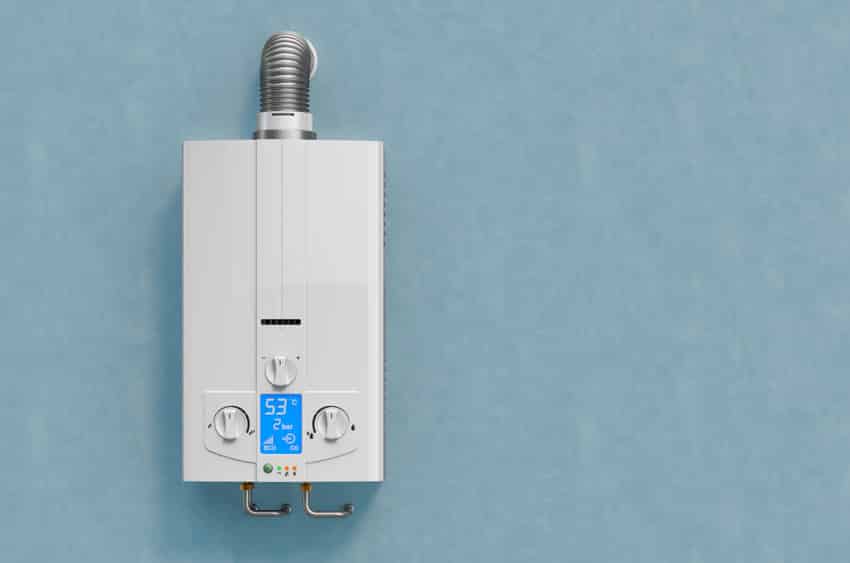
Certain gas heat-on-demand models, on the other hand, need an electric connection to turn on the pilot light. It is not always correct that gas boilers exclusively require gas fuel to operate. It could also require electricity to function.
It will be easier for you to select and fix your home’s heating system if you understand the fundamentals of a heating unit to help make the best choice for your needs.
See more related content in our article about the types of water softeners on this page.

